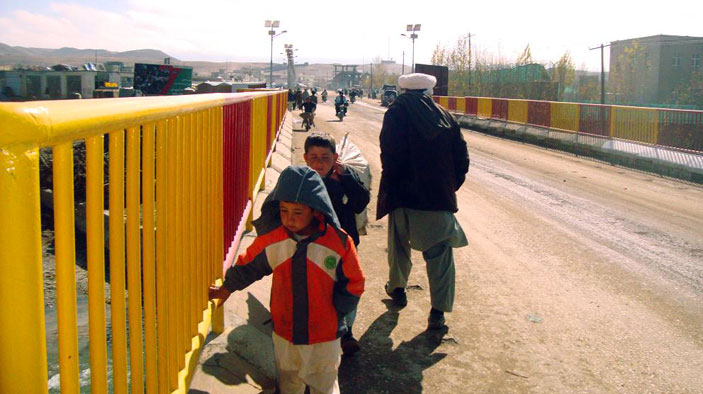Afghanistan—Regional Afghan Municipalities Program for Urban Populations, Regional Command West (RAMP UP West)
Client: U.S. Agency for International Development
Duration: 2011-2014
Region: Eastern Europe and Central Asia
Country: Afghanistan
Solutions: Governance Fragile States
Afghan municipalities have long suffered from underinvestment, limited support, low revenues, and weak institutional capacity. As a result, services and infrastructure in municipalities are minimal. Few have piped water systems or consistent city power—lack of access to electricity is common. Inadequate sanitation services result in high rates of infant mortality. Community and social amenities are deteriorated or absent.
The Regional Afghan Municipalities Program for Urban Populations, Regional Command West (RAMP UP West) project established capable governance at the municipal level. RAMP UP West used a “learning by doing,” approach by helping municipalities implement visible service delivery improvement projects. Through these projects, municipal officials not only improved their capacity to deliver services themselves, but increased citizen satisfaction with, trust in, and support for the municipal government. The embedded technical advisors with municipal staff provided necessary resources and built the capacity of municipal staff to better perform their core management responsibilities, such as improving service delivery, supporting economic development, ensuring sound financial management, expanding revenues, and enhancing transparency and accountability. All programming put municipal officials in front of their citizenry, demonstrably in charge of projects and activities made possible with RAMP UP funding. Municipal officials led, directed participatory planning processes, and oversaw implementation.

Sample Activities
- Increase the capacity of municipal officials.
- Improve the delivery of municipal services to citizens.
- Boost municipal capacity to enable, support, and sustain economic growth.
- Support citizen participation and civil society engagement including women and youth.
Select Results
- Assisted municipalities to implement 17 key infrastructure and service delivery projects previously identified by citizens as urgent needs, including the construction of sidewalks, rehabilitation of roads, bridges, and drainage canals, and the building of boulevards, parking lots, garbage bins, and public green spaces.
- Held workshops where 11,466 citizens attended to learn about roles and responsibilities of the municipality and citizens.
- Developed Municipal Management and Capacity Building Plans for each municipality and trained more than 200 municipal officials in municipal finance, public administration, revenue enhancement, business registration, public relations and outreach, construction management, and public works maintenance.
- Supported municipal officials in all four partner municipalities to hold two budget hearings each that allowed for citizen input into the budget preparation process.
- Supported three partner municipalities to discuss city planning and touch on key issues such as the cleanliness of the city and the role youth can play in keeping the city clean.
- Increased municipal revenues between 21 and 264 percent by identifying new resources and registering 6,790 properties and businesses.
- Assisted in the establishment of Municipal Advisory Boards to engage citizens in municipal decision-making processes. Engaged 5,200 citizens in the development of Service Delivery Improvement Plans during nearly 50 sessions.
- Established multistakeholder Economic Development Steering Committees in each partner municipality to facilitate the inclusive development of Strategic Economic Development Plans.
RELATED CONTENT:
Zimbabwe—Transparency, Responsiveness, Accountability, and Citizen Engagement (TRACE)
Zimbabwe TRACE seeks to design, build, and implement a civil society support programme where the civil society organisations look at government in a less adversarial way and forge relationships to promote constructive dialogue and partnership.
Read More